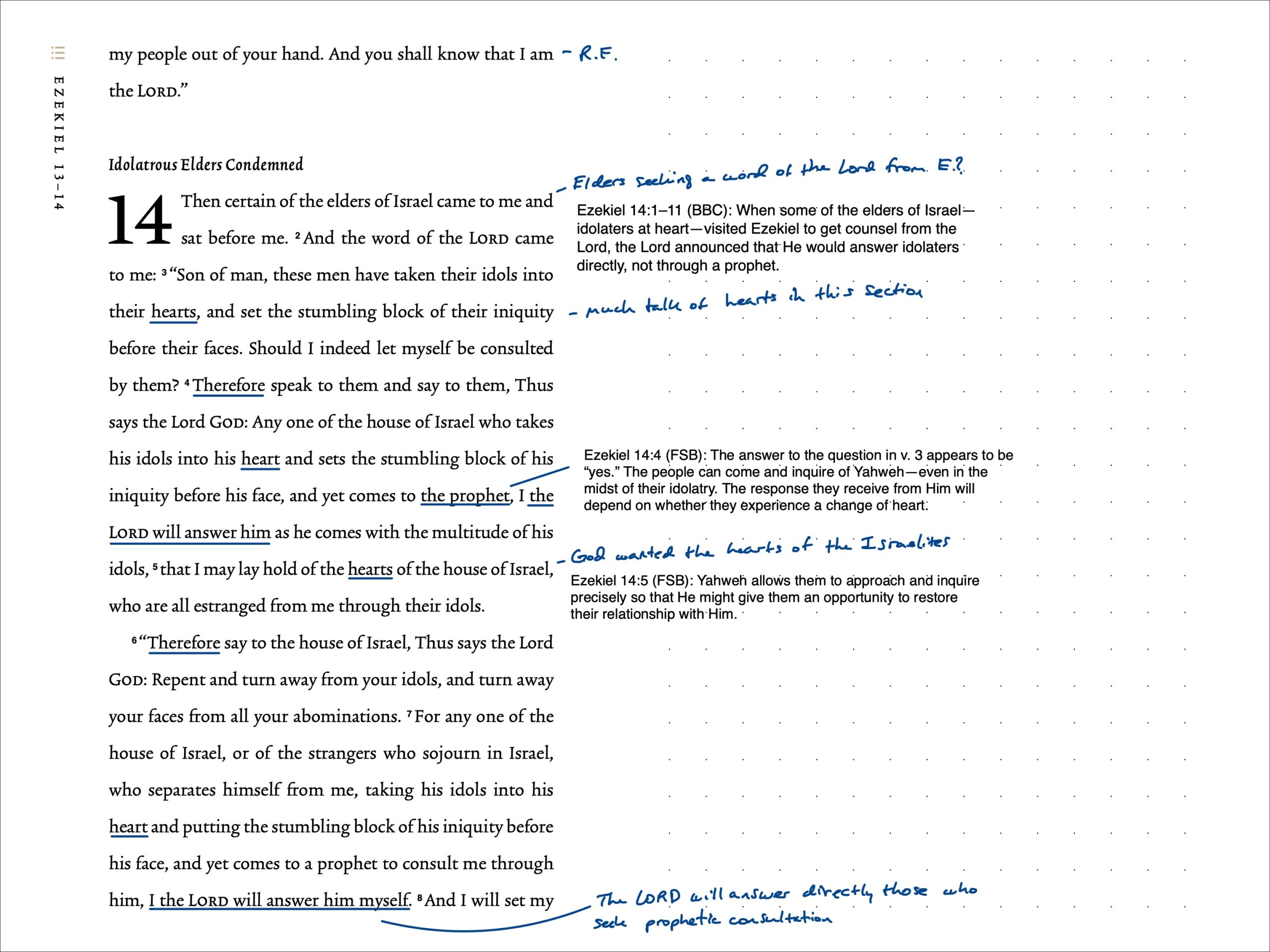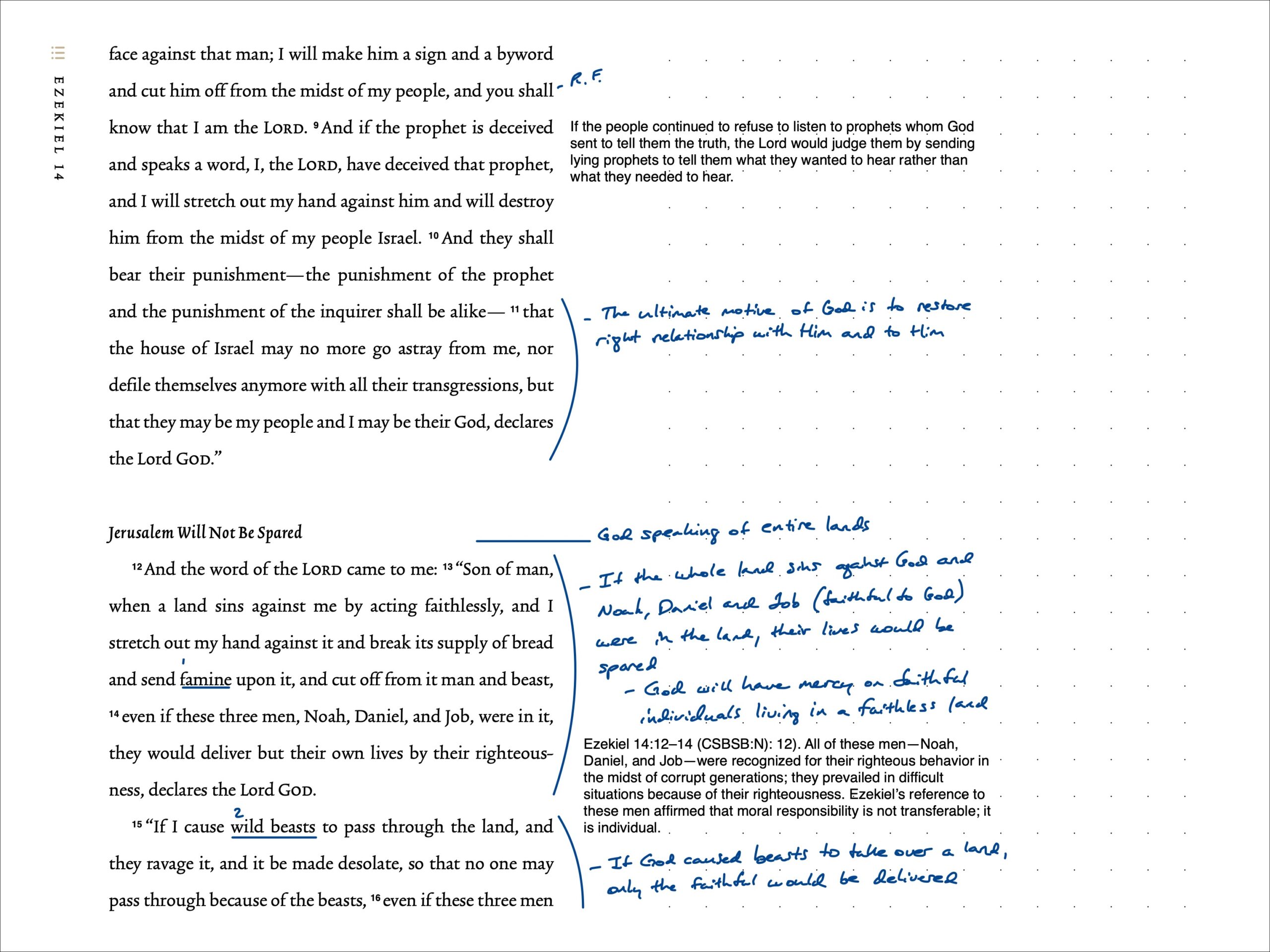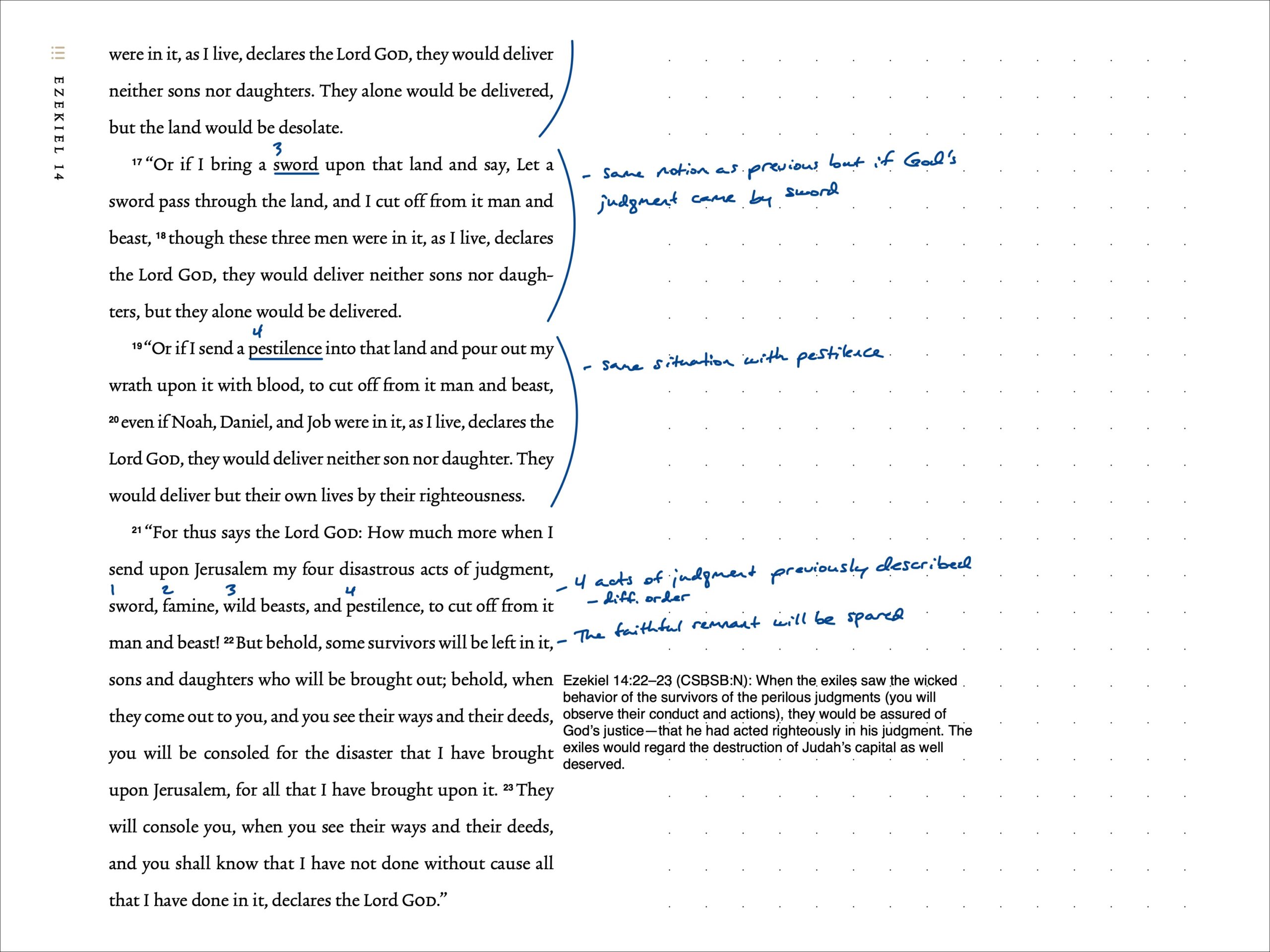| Date | Version | Reading Plan |
|---|---|---|
| @September 4, 2023 | ESV (2016) | ESV Prophets Plan 2023 |
Pericopes
- Idolatrous Elders Condemned
- Jerusalem Will Not Be Spared
Notes
The chapter opens with some of the idolatrous elders visiting Ezekiel to receive a word from the LORD. God through Ezekiel announced to them that He would answer their wickedness directly, not through a prophet.
In Ezekiel 14:3-5, there are many references to the heart and how the elders had “taken their idols into their hearts” (Ezek. 14:3). For those who have, God would avail Himself for inquiry, but the answer they receive from Him will depend on if they experience a change of heart and turning away from idolatry.
In Ezek. 14:6-11, God calls for repentance and to turn away from their idols and abominations. The LORD will answer directly those who have put a “stumbling block of iniquity before his face” and seek prophetic consultation (Ezek. 14:8). God will set His face directly against that man (Ezek. 14:9). And if the prophet gave an answer when asked, the prophet would be deceived and would be punished together with the inquirers. Ezek. 14:11 illuminates God’s underlying motive which was that “Israel may no more go astray” and that their right relationship with Him would be restored.
The concluding section (Ezek. 14:12-21) are of the judgments of God against lands that sin against Him and act faithlessly. There are four methods described: 1) famine (Ezek. 14:12-14), 2, wild beasts (Ezek. 14:15-16), 3) sword (Ezek. 14:17-18), 4) pestilence (Ezek. 19-20). In these descriptions, God says that if the whole land was faithless but Noah, Daniel and Job were in it (representing the faithful), they would deliver their own lives. Ezekiel’s reference to these men affirmed that moral responsibility is not transferrable but individual. Moreover, when the individuals that comprise the faithful remnant saw the wicked behavior of others, they would be assured of God’s justice, regarding the destruction of Judah’s capital as well-deserved.
Application
In the last half of the chapter, other prophets (Noah, Daniel and Job) are referenced in representing the faithful in a land that was sinning and acting faithlessly. The focus here seems to be the individuality of their faith and of ours. Yes, faith is to be lived out in community, but each of us has a personal relationship with the Lord. It cannot be lived vicariously through others. I find this convicting as I can easily look on the faith of others with admiration. While it is good to see a strong faith exemplified, I need to understand that the Lord’s work being done within me is very specific.
The other concept that seemed to resonate this morning was how the faithful remnant would be assured of God’s justice when it was exacted against the wicked in Ezek. 14:22-23. This continues to be a struggle as so many people whose dispositions and actions are against God and yet appear to be flourishing. Passages like these are helpful in understanding that judgment will come to all who are at enmity with Him and that He will have the final word.
Scripture Journal Notes
Commentaries & Resources Used
- ESV Study Bible. (Wheaton, IL: Crossway, 2008)
- Faithlife Study Bible (Lexham Press, 2016)
- Believer’s Bible Commentary (Thomas Nelson, 2016)
- CSB Study Bible Notes (Holman Bible Publishers, 2017)
- Matthew Henry’s Commentary on the Whole Bible (Guardian Press, 1976)
- The Bible: A Reader’s Guide (Sterling Publishing, 2011)
- The Infographic Bible (Zondervan, 2018)
- ESV Digital Scripture Journal (Crossway, 2019)


